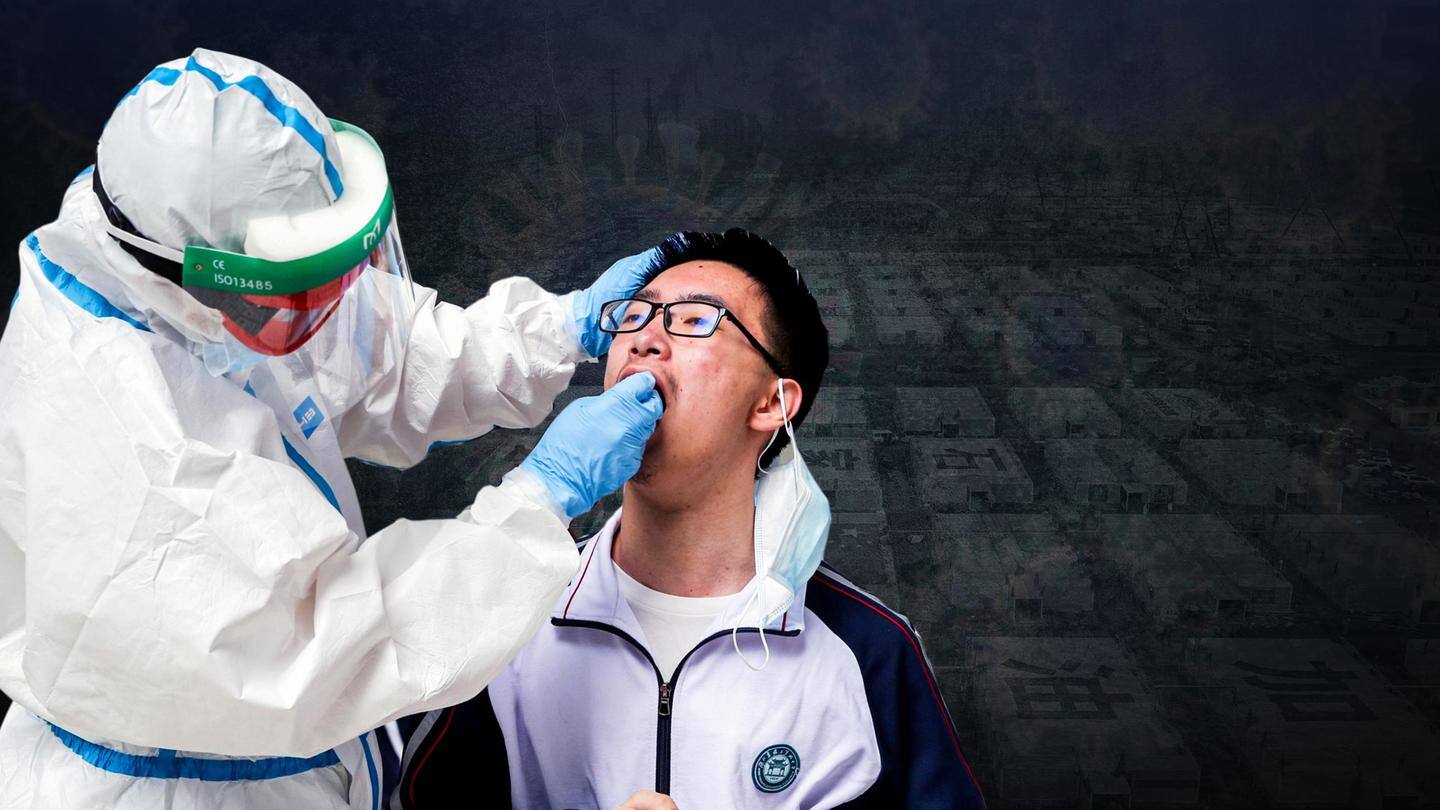
Beijing: 13,000 COVID-19 negative people forced into quarantine
What's the story
To achieve the "zero-COVID-19" goal in China, over 13,000 Beijing residents who tested negative have been forced into quarantine.
The Chinese capital city has been battling its worst outbreak since the start of the pandemic in early 2020 with the Omicron variant infecting over 1,300 since late April.
This has prompted authorities to close restaurants, schools, and tourist attractions indefinitely.
Context
Why does this story matter?
China is currently grappling with one of its worst COVID-19 outbreaks, triggered in early March by the Omicron variant.
To recall, China had brought in the "zero-COVID-19 policy" in 2020 to keep in check the spread of infections.
Shanghai was under a strict lockdown since early April, while Beijing is keeping up its defenses in an outbreak that has persisted for a month.
Quarantine
People warned of legal actions in case of non-cooperation
The residents of the already locked-down Nanxinyuan compound in Beijing were relocated to quarantine hotels on Friday as 26 new infections found in recent days.
The Chaoyang district authorities also warned of legal repercussions in case people don't cooperate.
Beijing has also classified 15 areas as high-risk and 23 as medium-risk for the COVID-19 infections.
Wartime scene
People asked to pack essential items and leave
Social media is replete with photos of residents tugging their luggage to board coaches parked outside the compound with some calling it a "wartime" scene.
Residents were asked to pack their clothes and essential belongings, while their homes would be disinfected.
"Some of us have been locked down for 28 days since April 23, and we all tested negative throughout," a resident posted.
Municipal official
Strict measures in Beijing due to community-level transmission
A municipal official said that with the discovery of hidden community-level transmission through recent screenings, Beijing would extend strict restrictions.
"Restaurant dine-in services would remain unavailable, and schools would continue online classes," Xinhua quoted an official as saying.
People in Fengtai and Fangshan districts have been asked to work from home or reduce occupancy in offices.
Bus and metro stations have also been shut.
Transport partly restored
Shanghai is easing restrictions
In a major development, Shanghai on Saturday restored part of its transport network, exiting a weeks-long COVID-19 lockdown.
The financial hub had been locked down since early April with the economy bearing a huge brunt.
Though subway services would be for limited hours and only 200 bus routes have reopened, this would let people travel between districts and to train stations and the airport.
Locally transmitted
New cases in several cities
China reported at least 181 locally transmitted confirmed COVID-19 cases on Friday, of which 84 cases were found in Shanghai and 58 in Beijing.
New cases were also reported in Sichuan (32 cases), Tianjin (six cases), and Henan (one case), the China Daily reported.
With the new infections and following recovery of 391 patients, the total confirmed cases across the country stood at 4,715.